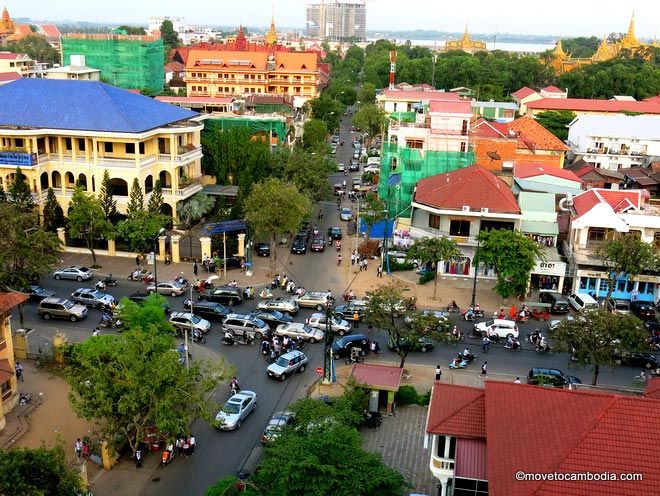If you’re considering buying property in Cambodia, you may have heard about hard titles and soft titles, and wonder which one you need. We talk to Leah Valencia from advertiser Elevated Realty in Phnom Penh to get the scoop on the difference between hard and soft land titles, and what are the pros and cons of each.

Does the saying ‘go hard or go home’ apply to land titles in Cambodia?
What’s the history of land titling in Cambodia?
“During the Democratic Kampuchea regime (1975-79), the Khmer Rouge abolished ownership of property and destroyed all existing official property records in Cambodia. At that time, all property belonged to the state and there were no private owners. After the Khmer Rouge fell, and for the next ten years, the right to own property was still not recognized and all property was owned by the government. In 1989 a land law was issued which established a framework for the recognition of property and property rights throughout Cambodia. In 2001 the Land Law was updated in an attempt to further clarify property ownership.”
How are land titles registered?
“Under the Land Law, property can be registered in two ways, systematic registration and sporadic registration. In the systematic system, the government targets plots of land to measure, register and title, this will continue until the whole country is complete. In the sporadic system, the owner initiates the title registration through the central cadastral office. There are currently two types of titles legally recognized in Cambodia, soft titles and hard titles.”
What is a soft title?
“The majority of property in Cambodia is legally held under a soft title, 70% of properties in urban areas and 82% in rural areas. Property held under a soft title is registered at the local sangkat or district level, but not at the national level. Soft title documentation can take a variety of forms, such as a letter of transfer from the previous possessor stamped by the sangkat or district office, a possession status certificate from the local sangkat or district office, or a building application.
Buyers wanting to purchase a soft title property should conduct their own due diligence, at the sangkat or district office to confirm whom holds the soft title to the property. Similar enquiries should be made with the property’s neighbors. The property boundaries should also be carefully checked, as borders are often not properly demarcated and overlaps with neighboring properties can exist. Often a soft title is prefered due to the taxes, fees and the processes involved in obtaining a hard title. However, the option to convert from soft title into a hard title is a right, either when systematic registration occurs or via sporadic registration.”
What is a hard title?
“A hard title is an ownership certificate which is issued by the Cadastral Office and recognized at the national ministerial level as well as at the sangkat and district level. This is the most secure form of ownership, its registration should be the only evidence required of an indefeasible title.”
What is a LMAP title?
“In 2002 the Land Management and Administration Project (LMAP) was initiated, by the World Bank and other supporting nations, to implement systematic registration of property. LMAP and other similar initiatives have developed the legal framework for land administration, training of Ministry and technical staff, and officiating over a million titles. LMAP titles are considered reliable as they are anchored to GPS points, which may be valued at a premium by foreign purchasers. However, LMAP titles can be difficult to secure as many of those issued have been in rural geographical areas.”
What are the pros and cons of a soft title versus a hard title?
Soft title pros:
More properties available
Faster processing
Excludes 4% transfer fee and other costs
Can be converted to a hard title
Soft title cons:
Not registered at the national ministry
Provides less property information and history
Risk of boundary overlap
Cannot be used to secure financing
Hard title pros:
Registered at the national ministry
Ownership is indisputable
Full property information and history
Can be used to secure financing
Hard title cons:
Fewer available properties
Slower processing
4% transfer fees and other costs
→ Read more about buying and renting property and housing in our Phnom Penh real estate guide.
Elevated Realty specializes in finding the perfect home or property in Cambodia. View their properties on their site, Elevated Realty, or give them a call at +855 (0)23 220 609.
Leave a Reply